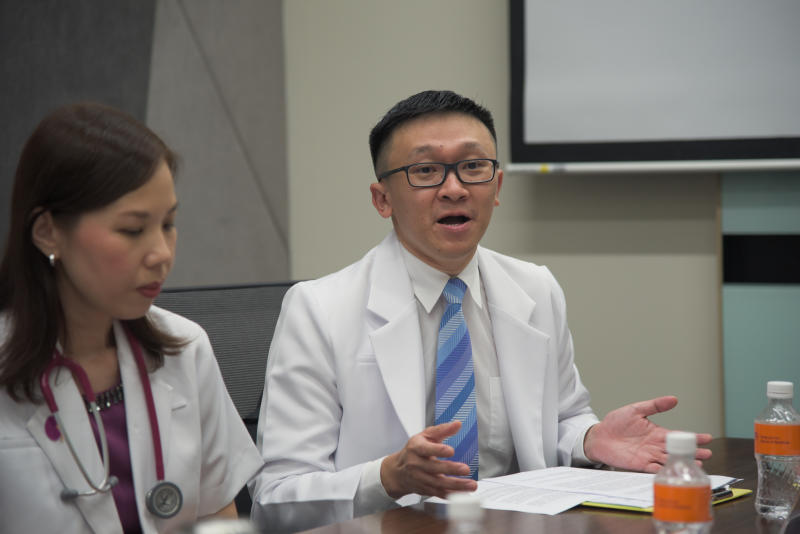First pharmacists, advanced practice nurses certified to prescribe medicines
Sign up now: Get ST's newsletters delivered to your inbox

Mr Ng Boon Tat, principal clinical pharmacist at the Institute of Mental Health and a graduate of the National Collaborative Prescribing Programme.
ST PHOTO: LEE JIA WEN
Follow topic:
SINGAPORE - From Monday (July 2), 38 highly qualified pharmacists and nurses will be able to prescribe medicines and order tests for patients without needing a doctor to sign off on them.
Coming from the different healthcare clusters, they are the first to graduate from a national programme certifying them as collaborative prescribing practitioners (CPP).
But the 19 experienced pharmacists and 19 advanced practice nurses (APNs) from the National Healthcare Group, National University Health System and SingHealth will have to wait until their hospitals attain a licence - which they can apply for from Monday - for them to start.
Having qualified personnel able to prescribe medicines or order tests would save patients' time, said healthcare professionals.
Said Associate Professor Tham Kum Ying, education director and senior consultant for emergency medicine at Tan Tock Seng Hospital: "For the APNs in the emergency department whom I work with, my estimation is that they save each patient about eight minutes."
Prof Tham also chairs the committee overseeing the curriculum for the National Collaborative Prescribing Programme.
A graduate of the programme, Dr Karen Koh, 42, an advanced practice nurse at National University Hospital (NUH), who set up four APN-led clinics in collaboration with cardiologists at NUH, said collaborative prescribing practitioners would become even more important with an ageing population.
She said: "It gives us the satisfaction to know that we can go that extra mile for our patients, to give them that continuity of care. Otherwise, they would have to face prolonged waiting times while we consult the doctors and sort out prescriptions for them. We hope that with this new privilege, we can provide the best we can, the capability that we have been trained for on top of our licence to provide care."
Mr Ng Boon Tat, 40, principal clinical pharmacist at the Institute of Mental Health, said the most valuable part of the programme was learning to conduct physical assessments and patient evaluations. With those skills, he could pick up on other health issues suffered by patients with schizophrenia, for instance, and bring them to the attention of a doctor.
He said: "I can help the psychiatrist to co-manage patients within the collaborative practice agreement, and hopefully that can increase the availability and access of healthcare to them."
For it all to work, said NUS Department of Pharmacy Associate Professor Priscilla How, inter-professional education is key.
She said: "Through the course I saw a lot of camaraderie because the nurses, doctors and pharmacists all came together to help and teach each other. It was really heartwarming to see all the different medical professions come together."
The National Collaborative Prescribing Programme is a three-month programme organised by National University of Singapore's (NUS) Alice Lee Centre for Nursing Studies and Department of Pharmacy. It is conducted twice a year, and its next intake is on Aug 14.
Associate Professor Benjamin Ong, director of medical services for the Ministry of Health, said healthcare professionals have to adjust the way they work in the shift towards holistic, patient-centred care.
"(The programme) offers senior pharmacists and APNs, like yourselves, an opportunity to perform more advanced roles and responsibilities as well as expands their scope of practice," he said at the graduation ceremony at NUS.
"Empowering these trained professionals to prescribe medication and order tests in collaboration with doctors ultimately increases our patients' accessibility to healthcare."

